Secondary Skills for Career Advancement
It is very essential to possess a strong set of primary skills in today’s fast-paced & competitive job industry. However, job seekers overlook the importance of other abilities that can significantly enhance their career prospects. In this blog, we shall be understanding what are secondary skills, provide examples, and discuss how they can make a substantial difference in your career progression.
Table of Contents:
- What are Secondary Skills?
- Certain Examples of Secondary Skills
- How Essential are Secondary Skills for Career Advancement?
- Highlighting Secondary Skills in Resume
- Tips on how to do it: Utilizing secondary skills for Resume

What are Secondary Skills?
The key skills and information needed for a particular job or profession are known as primary skills, sometimes known as core skills or technical skills. On the other hand, secondary skills are a wide set of abilities that are not job-specific but may be used across numerous positions and industries. They are also known as soft skills or transferable skills. These abilities are crucial for assisting people in achieving success in their occupations and are frequently regarded as complements to primary abilities.
Certain Examples of Secondary Skills:
1. Effective communication: Is crucial for every profession. Your ability to express yourself clearly, listen intently, and modify your communication style for various audiences can have a big impact on how successful you are in your job.
2. Leadership and Management: Having leadership and management skills can help you stand out, even if managing a team is not your primary responsibility. These abilities include the capability to inspire others, assign responsibilities, and make calculated decisions.
3. Time Management: In any work, having the capacity to set priorities, adhere to deadlines, and manage your time effectively is crucial. It showcases your aptitude for planning ahead and dedication to achieving results.
4. Problem-Solving Attitude: These are essential in both technical as well as problem-solving professions. They help in determining and analyzing the underlying problems and finding workable solutions, making them highly sought after by employees.
5. Flexibility: The business environment is continuously changing. You may thrive in dynamic circumstances if you are adaptable and open to change, which makes you a great asset to any organization.
6. Critical Thinking: This can improve your capacity to solve problems and make judgments by allowing you to analyze information, weigh your options, and reach decision making.
7. Emotional Intelligence: Being sympathetic to others’ feelings and being able to understand and control your own emotions can help you build stronger bonds with people and foster a supportive work environment.
8. Networking: Creating and maintaining a professional network can lead to new opportunities. Making contacts with people in your business, going to events, and cultivating enduring relationships are all examples of networking abilities.

How Essential are Secondary Skills for Career Advancement?
- Versatility: These skill sets are adaptable and can be used in a variety of job roles and industries. This makes you a desirable fit for a wide range of positions, thereby increasing your career options.
- Differentiation: In a competitive job market, having a distinctive collection of secondary abilities might help you stand out from other applicants with comparable primary skills. Employers frequently search for applicants who can provide more than simply their technical skills.
- Leadership and Growth: Climbing the job ladder requires a variety of abilities, including leadership, management, and adaptability. They are frequently requirements for promotions and taking on bigger responsibility.
- Collaboration that Works: Establishing positive working relationships with coworkers and fostering a positive work environment requires the use of communication and teamwork. Collaboration and productivity can both benefit from having strong interpersonal skills.
- Career Resilience: In the dynamic employment market, foundational skills might deteriorate over time. Secondary abilities, such as adaptability and a commitment to lifelong learning, on the other hand, make sure that you are relevant at all times.
Highlighting Secondary Skills in Resume
Your resume must successfully highlight your secondary abilities now that you are aware of their significance for job progress. Tips on utilizing secondary skills for resume:
Designate a Section: Include a section on your resume specifically highlighting these skills. To make them easy to scan, group them into bullet points.
Customize for the Job: For each job application, personalize the section on secondary skills. Emphasize the ones that match the precise qualifications for the position you’re seeking for.
Give Examples: Whenever possible, give succinct examples or accomplishments that show how you’ve used your secondary skills in prior employment. If you’re highlighting your leadership abilities, for instance, list any noteworthy projects you’ve managed.
Make Your Skills Stand Out by Using Action Verbs: To make your skills stand out, begin each bullet point with a powerful action verb. For example, Managed a cross-functional team to achieve project goals.
Measure Results: Quantify how your skills have helped. For instance, “Improved team productivity by 20% through efficient time management.
Primary vs. Secondary Skills: Striking a Balance
Although they are unquestionably valuable, secondary skills cannot replace primary ones. For a career to succeed, finding a balance between the two is essential. Your primary skills lay the groundwork for your expertise, while your secondary talent lets you use your expertise more skillfully. In some situations, the intersection of the two might result in a potent combination.
Acknowledging the significance of secondary skills is vital for career advancement. These abilities not only help you become a more versatile and well-rounded professional, but they also greatly increase your marketability. Whether you’re a fresh graduate or a seasoned professional, continually developing and improving your skills can be the key to opening up new opportunities and attaining your career goals. Therefore, embrace these skills and watch your career soar!
Connect with Employers at the Indian Diversity Job Fair! Jobs for Everyone! Register NOW!





